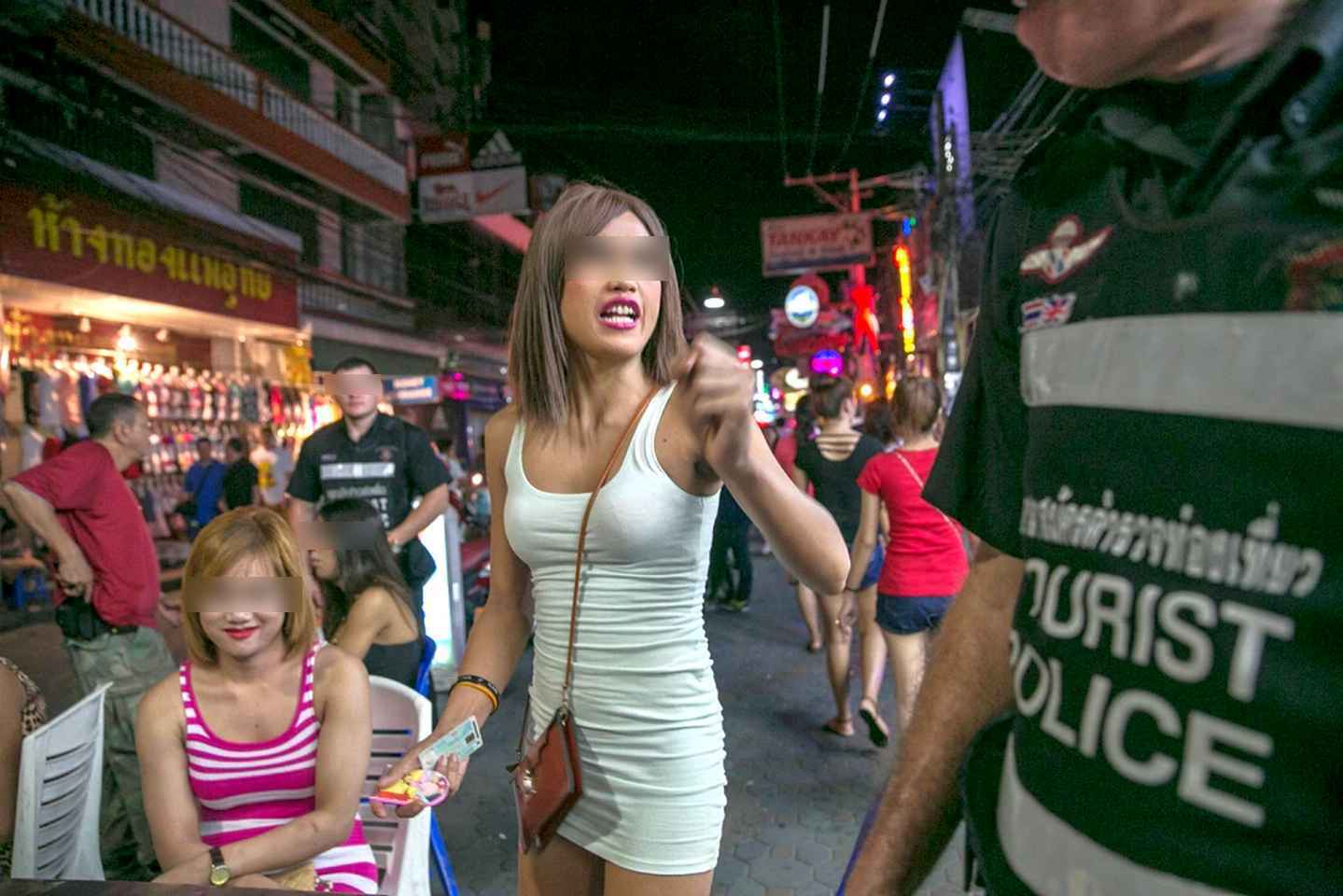
The latest parliamentary bill to legalize some sex work won’t be passed any time soon. A general election is scheduled in May and no one can predict who will be the next crop of lawmaking representatives. Moreover, there is bound to be a rearguard action by conservatives who believe that legalizing paid-for sex is an affront to Buddhist principles.
The proposal envisages that female and male sex workers over 20 will no longer be breaking the law provided they enrol with businesses registered with the police or provincial governors and subject themselves to health checks. There will be a range of protections ranging from the right to receive government handouts to rescue centers to prevent violence and trafficking. Sex workers under 20 will be not be prosecuted, but business operators and parents will face “consequences”.
Although the reforms have been welcomed by many campaigners, some sex workers say they won’t work out. Former prostitute and drag star Eggs Benedict said, “Many sex workers are part-time and temporary and they won’t fancy being registered on a government data base.” She also argued that prostitution was not limited to brothels or clubs with back rooms. “You can see sex on the beachfront and on certain streets. To deny that is like going to KFC and denying you saw fried chicken.”

Arna, who has worked in Pattaya’s Sexy Soi Six for eight years, said, “Most girls I know are not trafficked or forced into sex by bar and club owners. They can leave whenever they like.” She added that prostitution has changed a lot over the years. “Mobile phones and the internet mean that customers can now contact women for hire without ever stepping foot in a bar.” She also suggested that if prostitution became legal, the problem of overseas sex workers from Uzbekistan and other countries would become worse. “The police mostly ignore them as it is, so what would change?”
Gay sex workers also expressed some cautiousness. “Many gogo boys don’t identify as gay, but are in the clubs to make money,” said Off who manages a cabaret show in Boyztown. Some have daytime jobs with families to support, so the idea of them signing up with the police or city hall is a non-starter.” He doubted whether trafficking was a significant issue in the gay scene. “Occasionally, you see underage boys being promoted on social media but the technology police are very vigilant these days about pedophile activity.”
All prostitution has been illegal in Thailand since the 1960s. The 1996 law on prevention and suppression detailed the penalties, some of which are minimal: for example, loitering in a public place for indecent purposes brings a fine of around US$20. Prostitution campaigners say that it is high time for Thailand for update its legislation. Angela Barthold, of the International Women’s Rights Campaign, said, “The latest bill is a step in the right direction. The fact that it doesn’t solve every single issue isn’t really the point.” Drafters say the parliamentary bill is likely to be amended at committee stage during the summer or even next year.





